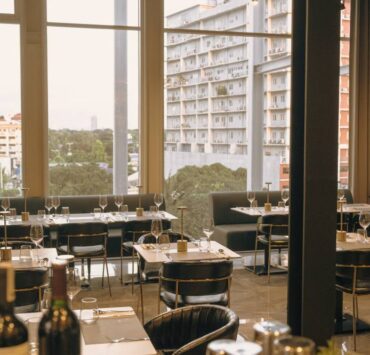Manila’s brightest pitch glows pink
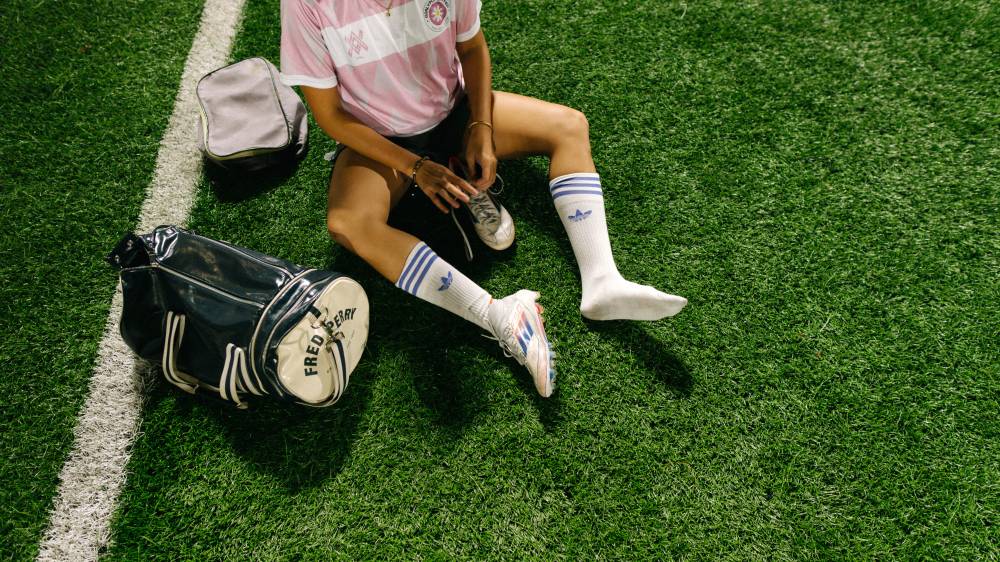
In a country where football pitches are dominated by men and money, the team making the most noise wears pink bows and lip gloss. Against the vivid green of the turf at Bonifacio Global City, braids and pink football kits painted the night with color—neon cones scattered like confetti, laughter carried louder than whistles.
From a distance, it looked like a scene from a coming-of-age film: women in bows, skirts, and eyeliner sprinting across the pitch—shouting, sweating, and loving every second of it. The name they play under makes some men laugh. Scoff, even: Girlypops Football Club.
But that’s the point.
The whim that became a movement
“I’m Angel, and I’m 28 years old. And I’m the founding member of Girlypops FC,” says Angelica Aplasca. Next to her, creative director Miggy Kaydo, 27, nods.
In the beginning, it was never meant to be anything more than a whim. “Honestly, it wasn’t a passion project because we just wanted to play. [It happened] on a whim. We realized from then on that we could make it a weekly routine. So now, we regularly play against each other, but also together,” Kaydo explains.
From the start, Aplasca wanted it to be a community. “We welcome every individual from any level. Most of the girls who join our team are vouched for by our existing members, [which helps with the safety of the club],” she says. “We want the community to feel safe, but still have fun. Nobody feels judged based on their experience or skill level. That was my number one objective when we started Girlypops FC.”
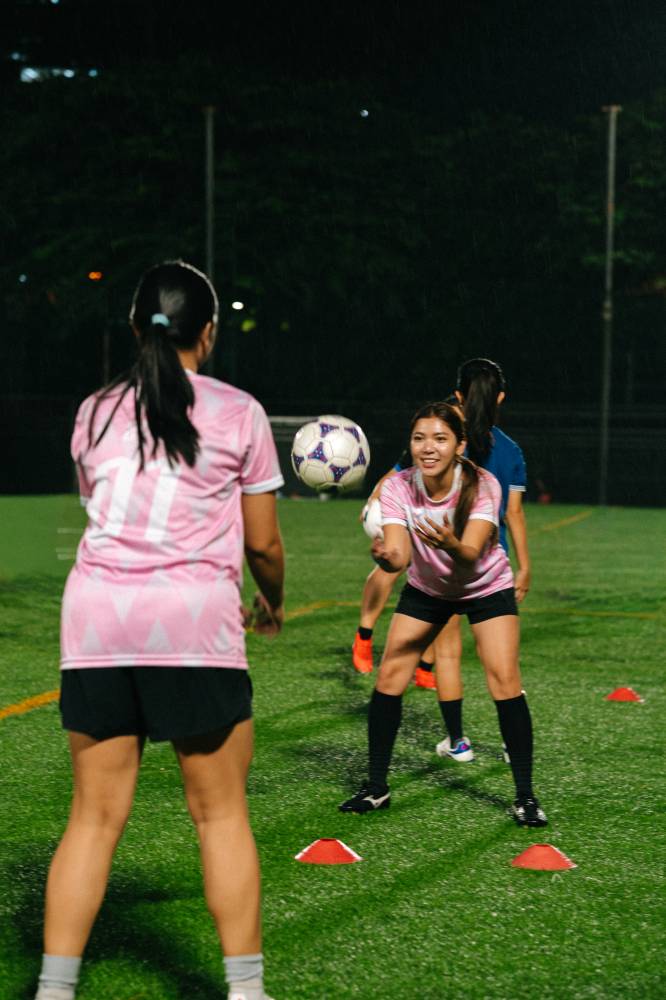
They even chose the name deliberately. “Actually, I named it [aptly] because I used to call my girls, Girly Pops,” Aplasca recalls. “When you think of football, you perceive it as very masculine. Here at Girlypops, we embrace femininity. We embrace being soft. We wear pink. If you want to wear a bow, go for it. If you want to wear a skirt, go for it. If you want to wear makeup while playing, go for it.”
Even the club’s branding is part of the subversion. No bold sans-serifs or studio shots of players mid-scream. Instead, you have serif fonts in blush pink over huddles of women smiling together. “It took me a long time to love pink,” Kaydo admits. “Having Girlypops helped me embrace that side of me. Now, I wear dresses and don stilettos. It was a hypermasculine sport that helped me reconnect with my femininity. Very ‘Barbie’ movie,” she laughs.
The coaches: From pros to pink pitches
If the founders rebranded football’s image, the coaches translated that spirit onto the field.
“I’m Ilemona, but they just call me Eli,” says coach Ilemona Usman, a former college footballer from Nigeria who later played for Maharlika, One Taguig, and Manila Digger.
His coaching philosophy is simple: “The only thing [different] is the intensity. They’re beginners. So, it’s not super high intensity as a coach. But the drills, whether kids or beginners, are the same. We don’t pressure them too much. We want them to enjoy it.”
Beside him, coach Mahmoud Ali, a Filipino Egyptian who plays professionally for One Taguig FC, adds: “On the pitch, yes, we have some players that are beginners. But slowly, every training we see [the girls] are improving. That’s a really good thing for us. Outside the pitch, we are a family.”
And then there’s Izo Elhabib, who doesn’t speak here, but whose presence is felt everywhere. In 2010, he was the UFL’s top goalscorer at Kaya Digiprint, one of the country’s most feared strikers. Now, he’s quietly reshaping beginners into footballers.
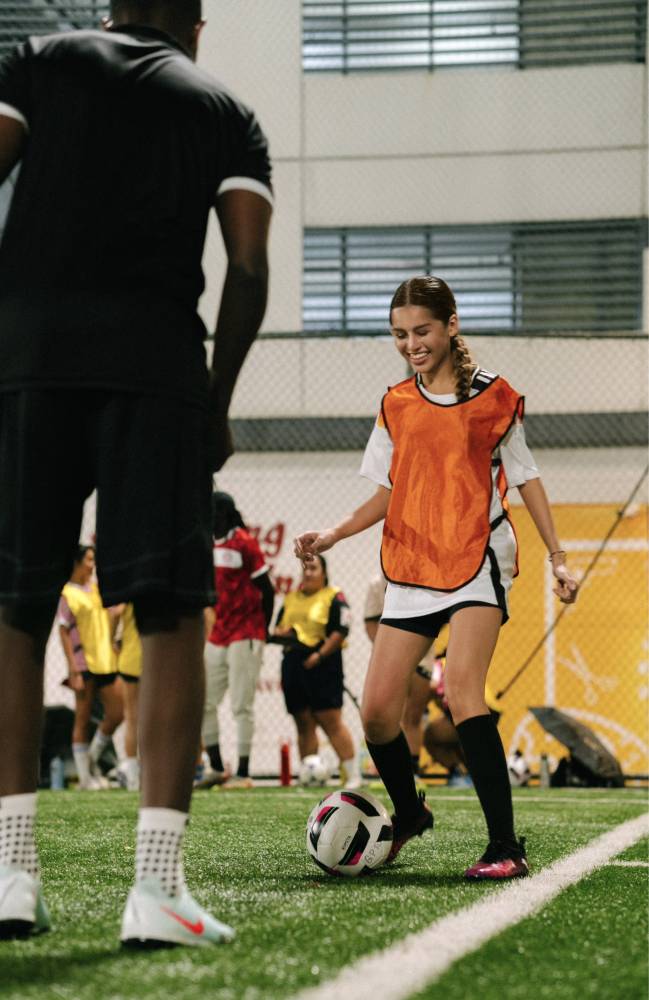
Though it was my first training session and football game ever, not once did I feel lost because coach Elhabib stood on the sidelines, guiding me all throughout the game.
As we trained, he focused on helping me perfect my passes. He was so kind every time when he gave tips for correction, and beamed almost like a proud parent as I improved with each pass. His pride was contagious—he quite literally took me from zero to hero. By the time training was over, Aplasca assigned me the position of striker. I felt nervous, but not once did I feel unready, because I had the country’s number one striker of 2010 coaching me.
The beginners, returnees, and the unexpected
For beginners like Tiny Moneza, who’s only two weeks into football, the intimidation factor was real—until Girlypops. “When it comes to the culture, I can say that it’s very open,” she says. “They’re very welcoming and [the sport doesn’t feel] intimidating. Because when we think of football, right, [it can be intimidating], but it didn’t feel that way when I started.”
“Everyone was very encouraging and even the coaches, they really made sure to make me feel at ease with the sport and the people I was playing with. So it really feels like a community,” Moneza adds.
For Rhea Santillan, who’d played in other clubs before, the difference was immediate. “Football is intimidating. Of all the teams that I played with from the past, Girlypops FC is the most welcoming. And [they taught me that] you don’t need to be fit to play. You can just run, pass, and play.”
Actress Kelley Day brings another perspective. “I used to play football with men from the PFL, and I thought, ‘Oh, I can’t really play because I’m so scared to play with the boys,’” she laments. “They’re kind of more aggressive. They’re faster. They’re just on another level, especially the professional players. So I didn’t enjoy that.”
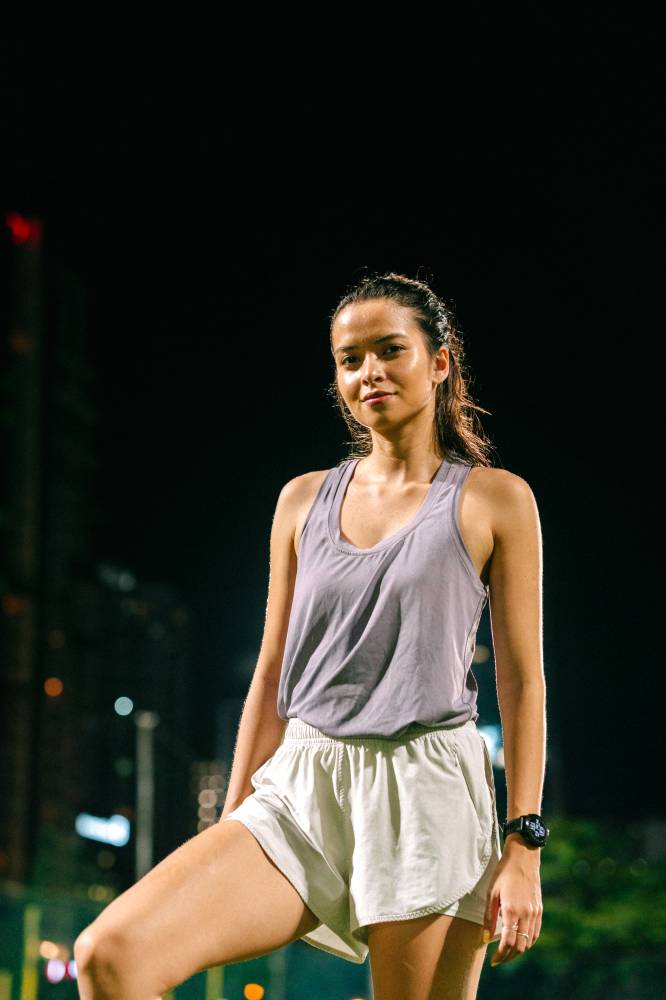
“When I heard about Girlypops, I was a little hesitant because I was like, ‘I don’t know, will I fit in?’ But during my first session, I felt so welcome. And I was like, this is what it’s supposed to feel like.”
For Day, tournaments have become sacred. “As soon as they say, ‘Hey guys, we have a tournament coming up. Who wants to join?’ I’ll put it in my calendar. I block it off from my work. It’s the only chance for me to kind of bring that sporty side of me out,” she adds.
A protest in pink
Of course, not everyone sees it this way. Football in the Philippines remains coded as masculine, elitist, and even exclusionary. Some men bristle at the sight of a team called Girlypops. Some even test them: “Name the World Cup winner in 2010.” or “Who’s your favorite center forward from 1998?”
Kaydo shrugs. “In every sport, there are always men that are like that. I don’t watch men’s football, I only watch women’s football, so if you ask me, ‘Which Ballon d’Or?’ Or ‘What tier?’ I can’t answer that. But for me, our presence on the pitch—it’s a protest. The work we do here, that’s our answer.”
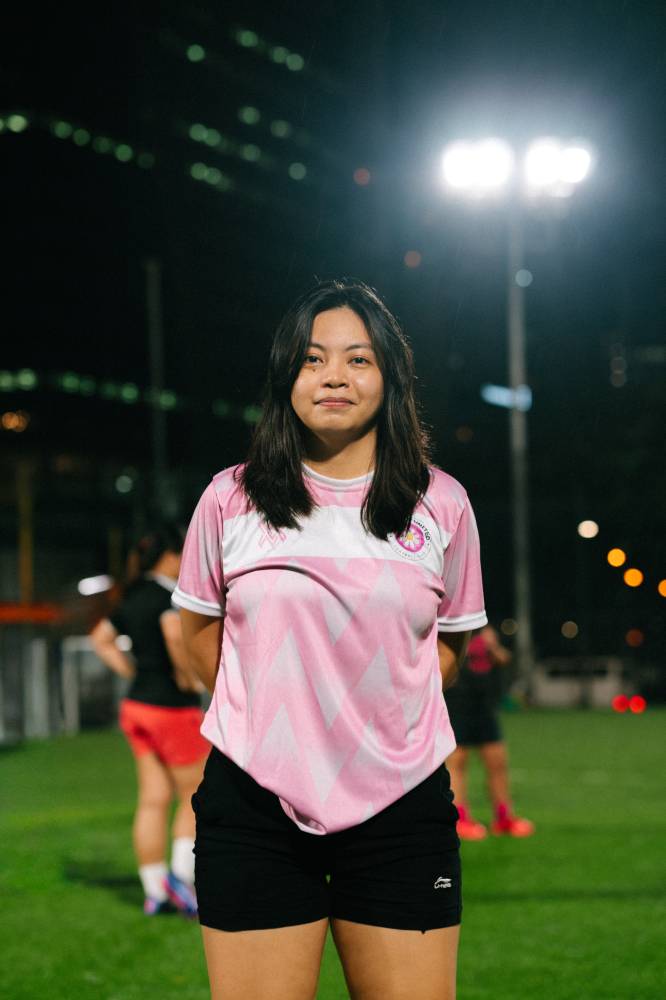
Coach Usman puts it more bluntly. “Where I’m from [Nigeria], ladies play football. Sometimes girls even beat boys. Football is all about understanding, pass and go. Sometimes, you even see a lady that is even better than some of the men. There are ladies who dedicate their time and effort to learn. And they excel in it.”
Fun, feminine, pink
At Girlypops, the fundamentals of football—passing, teamwork, discipline—remain. But the culture is different. Encouragement replaces criticism. Beginners are guided, not scolded. Showing up in a bow is as valid as showing up in worn-out cleats.
Aplasca sums it up in three words: “Fun, feminine, and pink.” Kaydo adds the club’s quiet war cry: “We want to shatter the misconception that we can’t. You’re saying we can’t? Watch me.”
And under the floodlights in BGC, as women of every skill level shout, laugh, and chase the ball across the pitch, the point is made. Football here is no longer just a man’s game.















